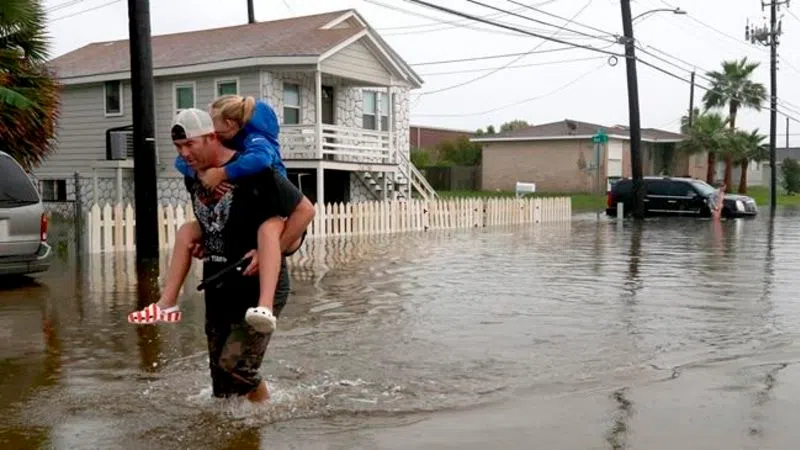
2 dead as Imelda strands drivers, floods homes in Texas
CHINA, Texas — The slow-churning remnants of Tropical Storm Imelda flooded parts of Texas on Thursday, leaving at least two people dead and rescue crews with boats scrambling to reach stranded drivers and families trapped in their homes during a relentless downpour that drew comparisons to Hurricane Harvey two years ago.
By Thursday night, floodwaters had started receding in most of the Houston area, said the city’s mayor, Sylvester Turner. Law enforcement officers planned to work well into the night to clear freeways of vehicles stalled and abandoned because of flooding, Houston Police Chief Art Acevedo said.
Officials in Harris County, which includes Houston, said there had been a combination of at least 1,700 high-water rescues and evacuations to get people to shelter as the longevity and intensity of the rain quickly came to surprise even those who had been bracing for floods. The storm also flooded parts of southwestern Louisiana.
More than 900 flights were cancelled or delayed in Houston. Further along the Texas Gulf Coast, authorities at one point warned that a levee could break near Beaumont in Jefferson County. During Harvey, Beaumont’s only pump station was swamped by floodwaters, leaving residents without water service for more than a week.


